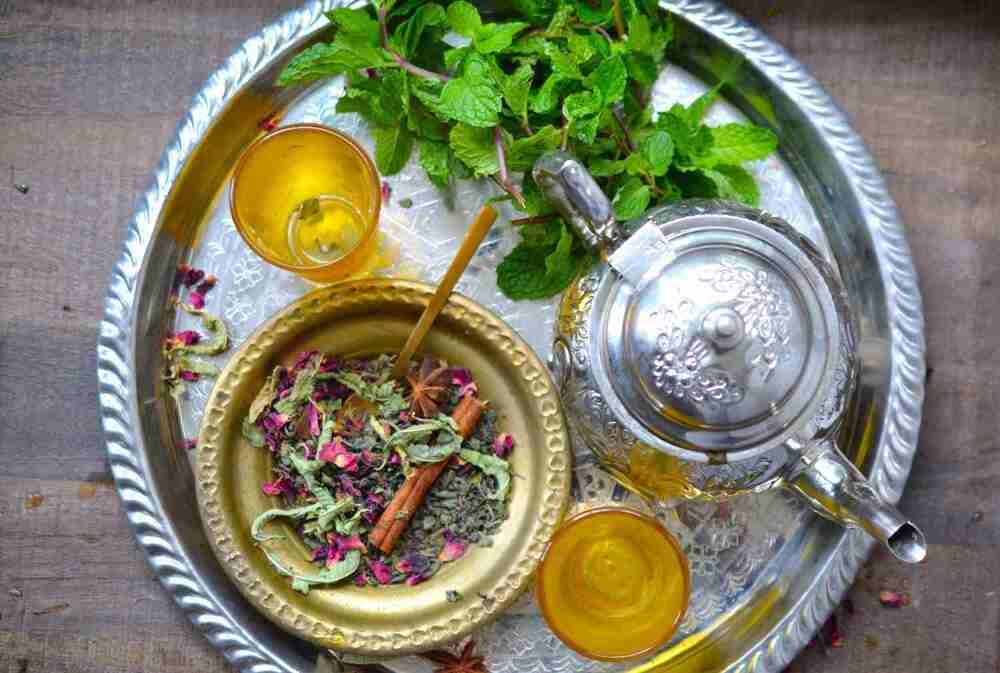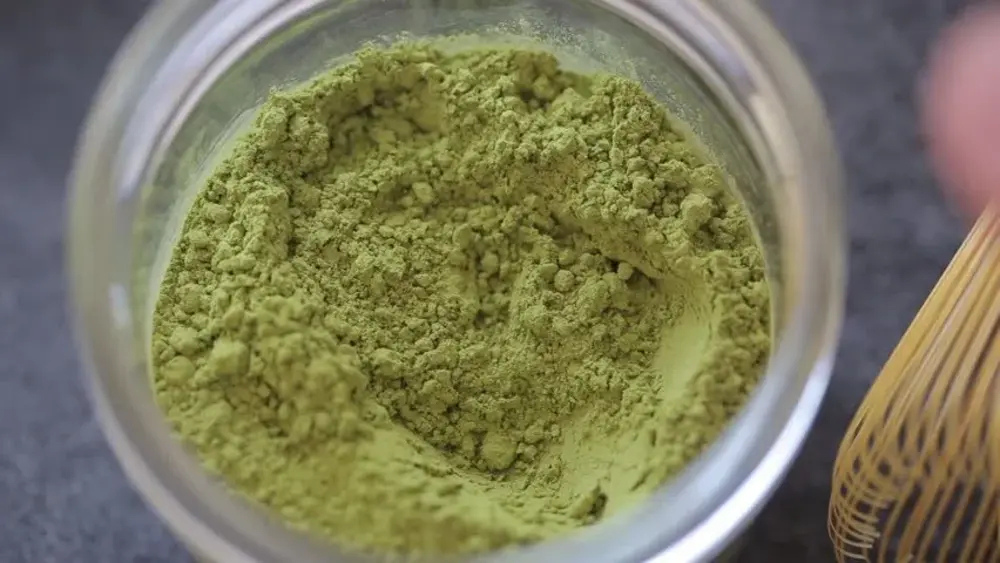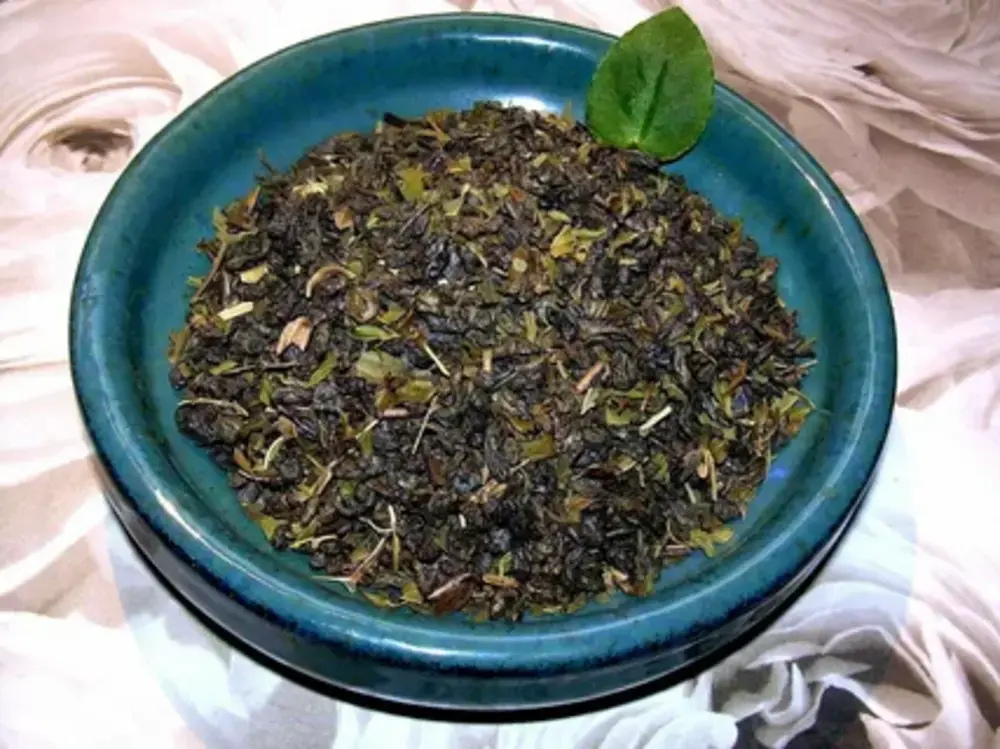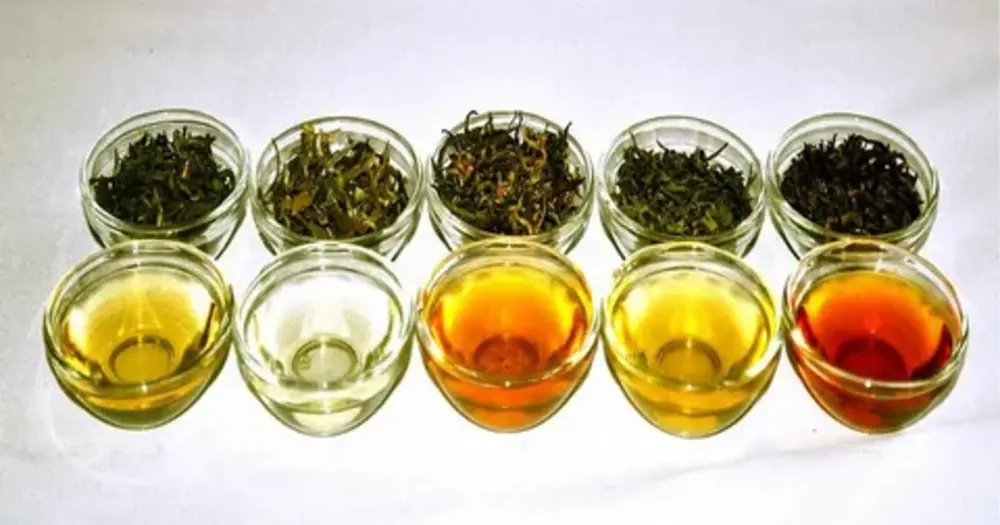Discover the top green tea Moroccan mint benefits — from digestion and immunity to weight control and mental clarity — and how to enjoy this iconic brew.
What Is Moroccan Mint Green Tea?
Moroccan mint tea, often called green tea Moroccan mint, is a time-honored North African beverage. It’s made with a base of green tea leaves — typically gunpowder green tea — and a generous amount of fresh spearmint or peppermint.
What makes this drink special is the balance of flavors: the slightly smoky, bold profile of green tea combined with the cool, refreshing burst of mint. Traditionally, a lot of sugar is added in Moroccan-style atay, though many enjoy it unsweetened for its health benefits.

How Moroccan Mint Tea Supports Digestion
One of the most celebrated green tea Moroccan mint benefits is its soothing effect on digestion. Mint contains menthol, which helps relax the smooth muscles of the gastrointestinal tract. That relaxation can reduce cramps, bloating, nausea, and general stomach discomfort.
Meanwhile, green tea stimulates bile flow, which supports fat digestion and helps your body process meals more efficiently.
This is why many people drink Moroccan mint tea after meals — it not only calms the stomach but also improves digestion and helps clear the palate.

Rich in Antioxidants and Polyphenols
Another major benefit of Moroccan mint tea comes from its antioxidant profile. The green tea base supplies catechins, especially the powerful EGCG, which are well-known for their ability to neutralize free radicals and reduce oxidative stress.
On top of that, mint brings its own antioxidant compounds, like rosmarinic acid and various flavonoids, that complement green tea’s polyphenols.
Together, these antioxidants help lower inflammation, support long-term cellular health, and contribute to the many green tea Moroccan mint benefits for overall wellness.

Boosting Immunity with Moroccan Mint
Green tea’s catechins are linked to enhanced immune response, while mint has natural antimicrobial properties.
Additionally, mint leaves contain minerals like magnesium, calcium, and potassium, which play roles in immune health.
When consumed regularly (and not loaded with sugar), Moroccan mint tea can be a comforting, gentle way to bolster your body’s defenses — especially during seasonal changes.
Calm Alertness: Mental Clarity & Focus
Green tea contains L-theanine, an amino acid known to promote a calm-but-alert state by influencing GABA and other brain chemicals.
Combined with the moderate caffeine from green tea, Moroccan mint tea gives you a steady energy boost without the jittery spike typical of coffee.
Plus, the refreshing aroma of mint itself can help wake up your senses and improve your focus — making it ideal for a mid-afternoon pick-me-up.

Respiratory & Oral Health Benefits
The menthol in mint acts like a natural decongestant — it can help open up your airways, loosen mucus, and ease symptoms when you have a cold or congestion.
On the oral health side, mint’s antibacterial properties help reduce the growth of odor-causing bacteria, while green tea catechins inhibit harmful bacteria that lead to plaque and cavities.
Drinking this tea regularly can therefore support both fresher breath and healthier gums.
Weight Management: How It May Help
| Point | Explanation |
|---|---|
| Role of Green Tea | Green tea is known to boost metabolism and increase fat oxidation due to its catechins. |
| Role of Mint | Mint’s strong aroma can reduce cravings and act as a mild appetite suppressor, helping prevent unhealthy snacking. |
| Low-Calorie Beverage | When consumed unsweetened, Moroccan mint tea is a low-calorie drink and a healthier alternative to sugary beverages. |
| Support for Weight Goals | This tea naturally supports weight goals by boosting metabolism, controlling cravings, and offering a low-calorie option. |

Stress Relief & Sleep Improvement
One of the most relaxing green tea Moroccan mint benefits is its role in stress relief. The L-theanine in green tea promotes a sense of calm by interacting with GABA receptors, while the ritual of brewing and sipping tea can be meditative in itself.
Mint’s aroma adds an extra soothing dimension — inhaling that fresh mint scent can help lift your mood and reduce anxiety.
Even though Moroccan mint tea has caffeine, its balance of L-theanine and moderate caffeine often makes it gentler than coffee.
Cardiovascular & Metabolic Health
Green tea Moroccan mint benefits also include heart and metabolic health. Flavonoids and catechins in green tea are associated with reduced LDL (“bad”) cholesterol, better blood vessel function, and lower blood pressure.
Some evidence suggests green tea can help regulate blood sugar levels and improve insulin sensitivity, making Moroccan mint tea a potentially helpful part of a metabolic-friendly lifestyle — especially when consumed without too much added sugar.
Safety & Side Effects: What to Be Careful About
Though green tea Moroccan mint benefits are many, there are a few precautions:
- It contains caffeine from the green tea base — sensitive individuals may need to limit how much or how late they drink it. Made in Atlas
- Tannins in green tea can reduce iron absorption — avoid drinking it immediately with iron-rich meals.

FAQ
Q: How much Moroccan mint tea should I drink daily?
A: For most people, 2–3 cups spread across the day captures benefits without overdoing caffeine.
Q: Does Moroccan mint tea have caffeine?
A: Yes, because of the green tea base. Typical amounts are about 20–40 mg per cup, depending on how it’s brewed.
Q: Can I drink it before bed?
A: If you’re sensitive to caffeine, try switching to a pure mint (spearmint or peppermint) infusion in the evening to avoid sleep disruption.
Q: Is it good for weight loss?
A: It may support metabolism and reduce cravings, but it’s not a magic solution — combine with healthy eating and activity





